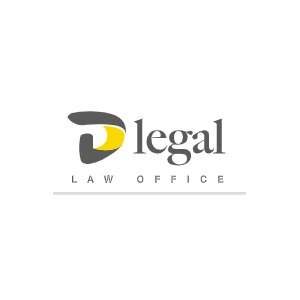Best Corporate Governance Lawyers in Calgary
Share your needs with us, get contacted by law firms.
Free. Takes 2 min.
List of the best lawyers in Calgary, Canada
About Corporate Governance Law in Calgary, Canada
Corporate governance refers to the systems, rules, and processes that direct and control companies. In Calgary, Canada, strong corporate governance is essential for organizations to operate ethically, remain compliant with the law, and meet the expectations of stakeholders. It covers topics such as the roles and responsibilities of directors and officers, shareholder rights, regulatory compliance, risk management, and transparency in decision-making. Calgary, as a major Canadian business hub, is guided by both federal and provincial regulations in corporate governance, making legal compliance especially important for corporations operating in the region.
Why You May Need a Lawyer
Corporate governance law can be complex, and working with a lawyer helps ensure that your organization is compliant and protected. People and companies often seek legal advice in situations such as:
- Starting or incorporating a new business
- Structuring a board of directors or revising bylaws
- Addressing conflicts of interest or resolving shareholder disputes
- Ensuring compliance with securities regulations
- Responding to regulatory investigations or audits
- Implementing whistleblower policies or ethical codes
- Advising on risk management and internal controls
- Mergers, acquisitions, or reorganizations
In these and other situations, a knowledgeable lawyer can help interpret the law, guide strategic decisions, reduce legal risks, and safeguard the interests of your business and its stakeholders.
Local Laws Overview
In Calgary, corporate governance is governed by a combination of federal and provincial laws. Key regulatory frameworks include:
- Business Corporations Act (Alberta) - This provincial law sets out requirements for the formation, management, and dissolution of corporations in Alberta, including rules for shareholders, directors, and officers.
- Canada Business Corporations Act - Applies to companies incorporated federally and outlines corporate governance standards and responsibilities.
- Alberta Securities Act - Regulates securities, public company disclosures, and the duties of publicly traded corporations.
- Common Law Duties - Directors and officers have fiduciary duties and a duty of care to act in the best interests of the corporation.
- Stock Exchange Rules - Public companies listed on exchanges like the TSX must adhere to additional governance and disclosure requirements.
Compliance is essential to avoid penalties, protect reputations, and ensure long-term success in Calgary's dynamic business environment.
Frequently Asked Questions
What is corporate governance?
Corporate governance is the framework of rules, practices, and processes by which a corporation is directed and controlled. It provides the structure through which company objectives are set, performance is monitored, and accountability is ensured.
Who is responsible for corporate governance in a company?
The board of directors is primarily responsible for overseeing corporate governance, with support from management, officers, and, in some cases, shareholders.
Are there specific corporate governance requirements in Alberta?
Yes, Alberta's Business Corporations Act sets out specific requirements for board structure, meetings, shareholder rights, and compliance obligations for companies incorporated in the province.
What are fiduciary duties for directors?
Directors must act honestly and in good faith with a view to the best interests of the corporation. They also have a duty of care to act prudently and diligently in their roles.
Do private companies need to follow corporate governance regulations?
Yes, both private and public companies must comply with relevant corporate governance laws. However, public companies are subject to additional regulations, especially regarding disclosures and transparency.
How can conflicts of interest among directors be managed?
Directors should disclose any conflicts of interest to the board and, where appropriate, refrain from voting or participating in related decision-making processes.
What are the consequences of poor corporate governance?
Poor governance can result in legal penalties, financial losses, damaged reputations, and erosion of stakeholder trust, which can threaten the viability of a business.
Are board meetings required for corporations in Calgary?
Yes, regular board meetings are required by law and are an important aspect of compliance and effective governance.
What should be included in corporate governance policies?
Typical governance policies cover board composition, roles and responsibilities, ethical guidelines, risk management, whistleblower procedures, and internal controls.
How can a lawyer assist with corporate governance?
A lawyer can help draft and review governance documents, ensure compliance with local laws, provide guidance in disputes or investigations, and advise on best practices for effective governance.
Additional Resources
If you need more information or guidance in corporate governance, the following resources and organizations may be helpful:
- Alberta Securities Commission - Regulates securities markets in Alberta
- Government of Alberta - Service Alberta, for information on incorporating businesses
- Canadian Bar Association Alberta Branch - Offers lawyer directories and legal resources
- Institute of Corporate Directors - Provides training and guidance for directors
- Calgary Chamber of Commerce - Supports local business and governance education
Next Steps
If you think you need legal assistance regarding corporate governance in Calgary, you should start by:
- Assessing your needs and outlining your company's governance questions or challenges
- Gathering any relevant documents, such as corporate bylaws, shareholder agreements, and meeting records
- Contacting a lawyer who specializes in corporate law and governance for an initial consultation
- Preparing a list of questions or concerns to discuss with your lawyer
- Following through with recommendations, including policy reviews or updates, director training, or implementing compliance programs
Taking proactive steps now can help ensure your company is resilient, compliant, and well-governed for future success.
Lawzana helps you find the best lawyers and law firms in Calgary through a curated and pre-screened list of qualified legal professionals. Our platform offers rankings and detailed profiles of attorneys and law firms, allowing you to compare based on practice areas, including Corporate Governance, experience, and client feedback.
Each profile includes a description of the firm's areas of practice, client reviews, team members and partners, year of establishment, spoken languages, office locations, contact information, social media presence, and any published articles or resources. Most firms on our platform speak English and are experienced in both local and international legal matters.
Get a quote from top-rated law firms in Calgary, Canada — quickly, securely, and without unnecessary hassle.
Disclaimer:
The information provided on this page is for general informational purposes only and does not constitute legal advice. While we strive to ensure the accuracy and relevance of the content, legal information may change over time, and interpretations of the law can vary. You should always consult with a qualified legal professional for advice specific to your situation.
We disclaim all liability for actions taken or not taken based on the content of this page. If you believe any information is incorrect or outdated, please contact us, and we will review and update it where appropriate.











